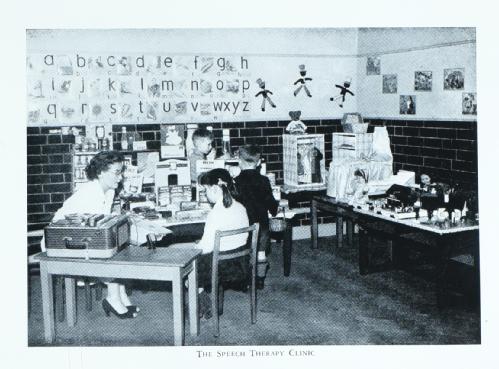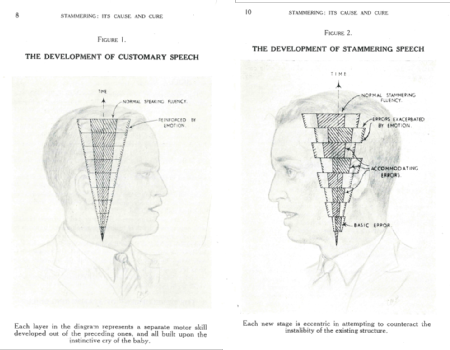Dr Andrew Burchell, Wellcome Trust Research Fellowship
The Child’s Speech: Speech Therapy, Stammering and Activism in Britain, c.1906-2000
Many people will know speech therapy from the 2011 film The King’s Speech – the (mostly) true story of George VI’s interactions with his therapist Lionel Logue.
Dr Andrew Burchell from the Department of History will seek to ground the profession’s development in tandem with the demands, activism and critiques emanating from people who stammer. His Fellowship ‘The Child’s Speech: Speech Therapy, Stammering and Activism in Britain, c.1906-2000' encompassing the early-twentieth-century peddlers of ‘stammering cures’ (who claimed to be ‘self-cured’) or elocutionist treatments developed by actors (including Lionel Logue himself).
The project will follow these through to the gradual introduction of speech therapy at the level of local state and the School Medical Services, and onwards to the late-twentieth-century creation of the British Stammering Association (founded in 1978 and rebranded as Stamma in 2019), and the embracing of a neurodivergent identity.
The project grounds speech therapy and stammering as co-constituted, and queries where the margins of medical authority and patient expertise lie.

'The Speech Therapy Clinic', frontispiece to the annual report of the School Medical Officer for Smethwick (1956), The National Archives, Kew, ED 137/608.

Illustrations from H. V. Hemery, Stammer is Not Nerves: stammering and its cure (London: School for Functional Speech Disability, 1955).
Capturing the voices of people who stammer for the historical record
Dr Burchell's Fellowship will also include an oral history component, which will capture the voices of people who stammer for the historical record and be archived for future research purposes.
It is hoped that its outputs will connect recent research in disability studies, the rise of ‘stammering pride’ and the current activism by people who stammer.
It will also encompass wider debates about how people who stammer should organise and celebrate their own historical memories.
